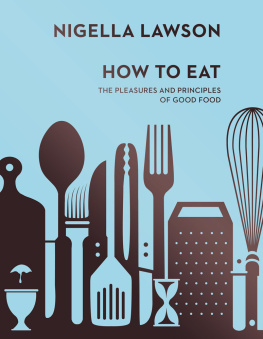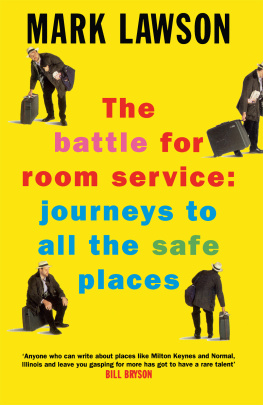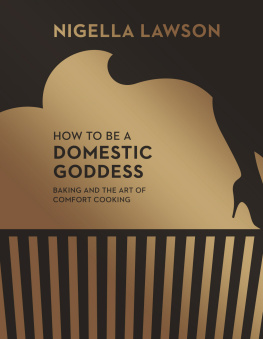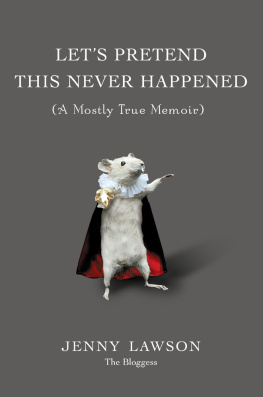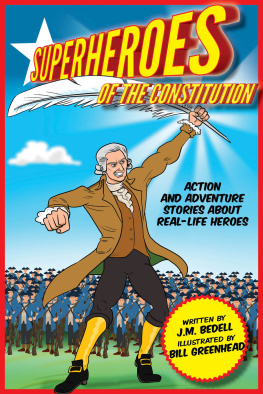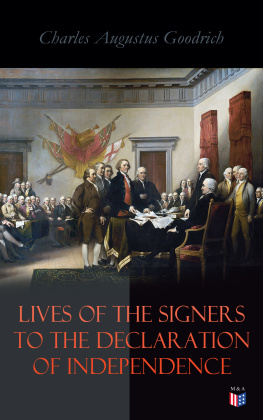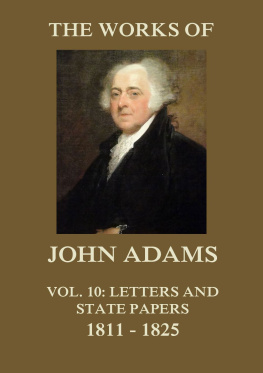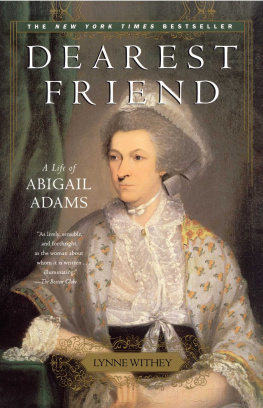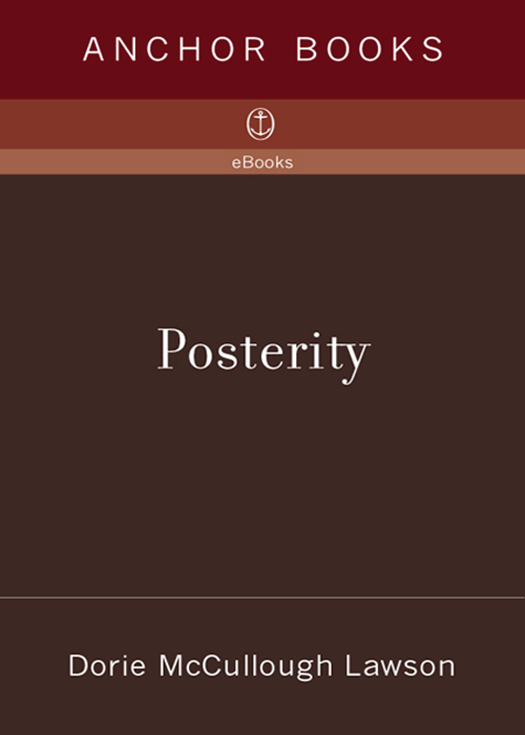
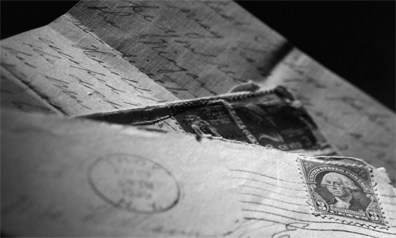
Doubleday
NEW YORK LONDON TORONTO
SYDNEY AUCKLAND
Posterity
LETTERS OF
GREAT AMERICANS TO
THEIR CHILDREN
Dorie McCullough Lawson

CONTENTS
WILLIAM HENRY SEWARD
ELIZABETH CADY STANTON
ALBERT EINSTEIN
JOHN D. ROCKEFELLER, JR.
ANSEL ADAMS
HENRY LOUIS GATES, JR.
JOHN ADAMS
ALEXANDER GRAHAM BELL
JACK LONDON
LINCOLN STEFFENS
EUGENE O'NEILL
N. C. WYETH
WILLIAM O. DOUGLAS
THOMAS JEFFERSON
SAM HOUSTON
SALMON P. CHASE
ALFRED THAYER MAHAN
WASHINGTON A. ROEBLING
THEODORE ROOSEVELT
RICHARD E. BYRD
SHERWOOD ANDERSON
EUGENE O'NEILL
N. C. WYETH
CLARE BOOTHE LUCE
JOHN STEINBECK
JOHN ADAMS
JOHN JAMES AUDUBON
CHARLES W. ELIOT
FREDERICK LAW OLMSTED
JOHN D. ROCKEFELLER
SHERWOOD ANDERSON
EUGENE O'NEILL
F. SCOTT FITZGERALD
LAURA INGALLS WILDER
N. C. WYETH
GEORGE PATTON, JR.
THOMAS JEFFERSON
ABIGAIL ADAMS
GEORGE CATLIN
WILLIAM JAMES
JOHN J. PERSHING
CARL SANDBURG
WILLIAM CARLOS WILLIAMS
WOODY GUTHRIE
HUME CRONYN
JOHN STEINBECK
ANNE SEXTON
JONATHAN EDWARDS
ABIGAIL ADAMS
THOMAS JEFFERSON
DANIEL WEBSTER
WILLIAM LLOYD GARRISON
SIDNEY LANIER
THEODORE ROOSEVELT
W. E. B. DU BOIS
JOHN O'HARA
JOHN ADAMS
MARK TWAIN
FREDERICK LAW OLMSTED
SIDNEY LANIER
WILLIAM JAMES
ALEXANDER GRAHAM BELL
THEODORE ROOSEVELT
JOHN D. ROCKEFELLER
MOE HOWARD
GROUCHO MARX
THOMAS JEFFERSON
MARY TODD LINCOLN
THOMAS EDISON
THEODORE ROOSEVELT
JACK LONDON
JOHN J. PERSHING
EUGENE O'NEILL
F. SCOTT FITZGERALD
ELEANOR ROOSEVELT
GEORGE WASHINGTON
BENJAMIN FRANKLIN
HERMAN MELVILLE
SAM HOUSTON
RICHARD E. BYRD
LINCOLN STEFFENS
HARRY S. TRUMAN
JOHN QUINCY ADAMS
DANIEL WEBSTER
FREDERICK DOUGLASS
HARRIET BEECHER STOWE
ROBERT E. LEE
MARK TWAIN
WOODROW WILSON
WILLIAM LLOYD GARRISON
HARRIET BEECHER STOWE
FREDERICK LAW OLMSTED
WILLIAM DEAN HOWELLS
N. C. WYETH
OSCAR HAMMERSTEIN
M. F. K. FISHER
GEORGE HERBERT WALKER BUSH
ANNE BRADSTREET
BENJAMIN FRANKLIN
BENJAMIN AND JULIA RUSH
JOHN D. ROCKEFELLER, JR.
F. SCOTT FITZGERALD
EDDIE RICKENBACKER
BARBARA BUSH
For my parents,
David and Rosalee McCullough
FOREWORD
This is an uncommonly wise and important book full of much wonderful writing and invaluable observations on life. It is also unprecedented, the first rich anthology of letters from eminent Americans to their children, selected from many thousands of letters written down the years in times of peace and war, flush times and times of extreme hardship and stress.
The authors of the letters include a number of the giants of American literaturenovelists, poets, playwrightsas well as soldiers, explorers, artists, and inventors. Eight of the authors were presidents of the United States. Three were first ladies. Two were the mothers of presidents, and two, the fathers. At least one, Thomas Edison, was an acknowledged wizard.
There are besides a pioneering physician, a world-famous industrialist, a brilliant lyricist, an actor, a photographer, a clergyman of the eighteenth century, the most influential physicist of the twentieth century, a legendary president of Harvardaltogether sixty-eight acclaimed Americans, each of whom did something exceptional in a multitude of fields over a span of more than three hundred years. But here they sign themselves Ever yours, Father and Friend, Your affectionate Mother, Papa, Dad, Daddy, Your Old Pal, or Mama Bess. For that was who they were, heart and soul, when composing these letters, and so, inevitably, understandably, they expressed themselves in ways they did not in other correspondence, often saying things that they never would to anyone else.
To get the most from the letters, one needs, of course, to know something of the setting and circumstance in which they were writtenthe sometimes surprising contextwhich makes the clear, perceptive biographical material provided here of the utmost interest and value.
Had the letters been written by people of no particular renown, one would still, I think, be struck by their great range and variety. But because the affectionate father happens to be Benjamin Franklin or General Patton, or the affectionate mother Abigail Adams or Barbara Bush, the force and importance of the letters are enormously compounded. And so it was, too, very often, for the recipients. Imagine being told by General John J. Pershing that it was past time for you to shape up!
Naturally, as parents, they were of many moods and wrote from a range of motives. They exhort and they sympathize. They caution, upbraid, tease, joke, teach, preach. They take pride and they take offense. And, of course, they offer no end of advice. Some of the letters are supremely entertaining. A few, written in anger, are hard to bear. Yet over and over, in ways obvious and subtle, even at times unkind, they are missives of love.
Often the authors want only to save their children from making the mistakes they have. When photographer Ansel Adams writes, I have spent a good part of my life trying to understand the obligations of a parent, he could be speaking for the authors of many of the letters, not to say all of us who in raising our children have had to learn as we go.
The oldest letter in the collection was written by the seventeenth-century poet Anne Bradstreet, who with her husband, Simon Bradstreet, was among the early settlers of the Massachusetts Bay Colony, arriving from England in 1630. Other letters date from our own time.
Some of the letters go on for pages, while one of the most moving in the collection, by Robert E. Lee, is only two paragraphs. And nearly all come from a time when writing letters was considered part of life. It was something you did as a matter of course. It was expected of you. Write no matter how tired you are, no matter how inconvenient it is, Theodore Roosevelt tells his son Quentin in a letter dated 1917.
For his part Theodore Roosevelt was one of the most prolific correspondents ever, pouring out more than 150,000 letters in one lifetime, and those to his children are among the most charming he ever wrote. Even in his busiest days as president, he would take time to write to his sons and daughters and always with infectious enjoyment, as his letters included here well demonstrate.
That so few of us write to our children any longer, that we so rarely write personal letters of any sort, is a shame. I think often of how little we will leave about ourselves and our time in our own words. Maybe some of the e-mail will survive, but I doubt it. How will future generations ever come to know us? Historians and biographers a hundred or three hundred years hence will have almost nothing of a personal kind to work with. Our story, consequently, will be a lot less interesting, less human, perhaps even impossible to write.
Next page



